
Have a great Wednesday!
*******
*******
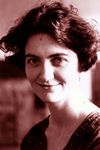 I am still hyperventilating over a letter [an email] I received from Emma Donoghue.
I am still hyperventilating over a letter [an email] I received from Emma Donoghue. The world is blue at its edges and in its depths. This blue is the light that got lost. Light at the the blue end of the spectrum does not travel the whole distance from the sun to us. It disperses among the molecules of the air, it scatters in water. Water is colorless, shallow water appears to be the color of whatever lies underneath it, but deep water is full of this scattered light, the purer the water the deeper the blue. The sky is blue for the same reason, but the blue at the horizon, the blue of land that seems to be dissolving into the sky, is a deeper, dreamier, melancholy blue, the blue at the farthest reaches of the places where you see for miles, the blue of distance. This light that does not touch us, does not travel the whole distance, the light that gets lost, gives us the beauty of the world, so much of which is in the color blue.
The world is blue at its edges and in its depths. This blue is the light that got lost. Light at the the blue end of the spectrum does not travel the whole distance from the sun to us. It disperses among the molecules of the air, it scatters in water. Water is colorless, shallow water appears to be the color of whatever lies underneath it, but deep water is full of this scattered light, the purer the water the deeper the blue. The sky is blue for the same reason, but the blue at the horizon, the blue of land that seems to be dissolving into the sky, is a deeper, dreamier, melancholy blue, the blue at the farthest reaches of the places where you see for miles, the blue of distance. This light that does not touch us, does not travel the whole distance, the light that gets lost, gives us the beauty of the world, so much of which is in the color blue.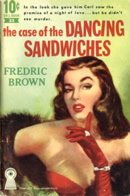 Now seriously, I love a good sandwich as much as the next guy.... but dancing ones, hmmm. I don't know.
Now seriously, I love a good sandwich as much as the next guy.... but dancing ones, hmmm. I don't know.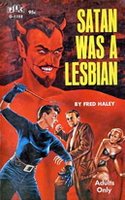 Admittedly, it is a theory I have long held to be actually true, but.... other books I have read by this Fred Haley guy, they just weren't all that good. So this one is #2 on my list.
Admittedly, it is a theory I have long held to be actually true, but.... other books I have read by this Fred Haley guy, they just weren't all that good. So this one is #2 on my list.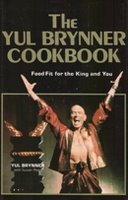 Sure.
Sure. Some of you Avid Puddlers© [if I may be so arrogant to believe that such a species exists…]… some of ye may recall that back in January, my laptop PC breathed its last.
Some of you Avid Puddlers© [if I may be so arrogant to believe that such a species exists…]… some of ye may recall that back in January, my laptop PC breathed its last. It’s my next scheduled act of Mac-devotion…..
It’s my next scheduled act of Mac-devotion….. Every man who amounts to a damn has several fathers, and the man who begat him in lust or drink or for a bet or even in the sweetness of honest love may not be the most important father. The fathers you choose for yourself are the significant ones.
Every man who amounts to a damn has several fathers, and the man who begat him in lust or drink or for a bet or even in the sweetness of honest love may not be the most important father. The fathers you choose for yourself are the significant ones. 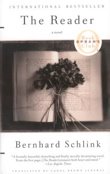 Reading her blog made me recall my own reading of the book.
Reading her blog made me recall my own reading of the book. You can have a good book that isn’t “successful” and doesn’t make a lot of money, you can have a bad book that isn’t successful and doesn’t make any money, you can have a good book that is successful and makes a lot of money, and you can have a bad book that is successful and makes a lot of money. There is no correlation between literary goodness and success and money. All you can do as a writer is try and respect the page. Try and respect the reader. Try and respect who is going to pick up that page. That page is all you have, that is your sole means of communication, so try and make that page as good as you can make it for where it is in the book. That’s all you can do.
You can have a good book that isn’t “successful” and doesn’t make a lot of money, you can have a bad book that isn’t successful and doesn’t make any money, you can have a good book that is successful and makes a lot of money, and you can have a bad book that is successful and makes a lot of money. There is no correlation between literary goodness and success and money. All you can do as a writer is try and respect the page. Try and respect the reader. Try and respect who is going to pick up that page. That page is all you have, that is your sole means of communication, so try and make that page as good as you can make it for where it is in the book. That’s all you can do. I am writing this about three minutes after the event itself.
I am writing this about three minutes after the event itself. Good morning. Or afternoon.
Good morning. Or afternoon.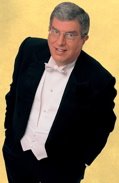 I think that these are some excellent words about success.
I think that these are some excellent words about success.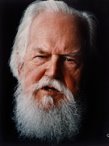 There are two kinds of cigar smokers – patrician fellows, who look as though they had been born to smoke the finest Havana, and people like myself, who look like cannibals gnawing a finger from their latest victim. If one does not belong to the very small first class, one should smoke cigars in private; nothing makes a man look so degraded as a drool-soaked, tattered, burning stump of tobacco stuck in one corner of his mouth.
There are two kinds of cigar smokers – patrician fellows, who look as though they had been born to smoke the finest Havana, and people like myself, who look like cannibals gnawing a finger from their latest victim. If one does not belong to the very small first class, one should smoke cigars in private; nothing makes a man look so degraded as a drool-soaked, tattered, burning stump of tobacco stuck in one corner of his mouth. Ann-Marie MacDonald, speaking of her novel, Fall On Your Knees:
Ann-Marie MacDonald, speaking of her novel, Fall On Your Knees: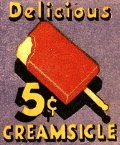 So last night after work I was at the Mall.
So last night after work I was at the Mall.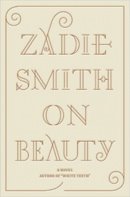 I noticed a real similarity in one aspect of a couple novels I recently read.
I noticed a real similarity in one aspect of a couple novels I recently read. Well, today's blog has absolutely nothing to do with a "book" but it almost did involve a "puddle"... I laughed so much at these two crazy girls, shown here.
Well, today's blog has absolutely nothing to do with a "book" but it almost did involve a "puddle"... I laughed so much at these two crazy girls, shown here. “I must confess that I am not afraid of the word ‘tension.’ I have earnestly opposed violent tension, but there is a type of constructive, nonviolent tension which is necessary for growth. Just as Socrates felt that it was necessary to create a tension in the mind so that individuals could rise from the bondage of myths and half-truths to the unfettered realm of creative analysis and objective appraisal, we must see the need for nonviolent gadflies to create the kind of tension in society that will help men rise from the dark depths of prejudice and racism to the majestic heights of understanding and brotherhood.”
“I must confess that I am not afraid of the word ‘tension.’ I have earnestly opposed violent tension, but there is a type of constructive, nonviolent tension which is necessary for growth. Just as Socrates felt that it was necessary to create a tension in the mind so that individuals could rise from the bondage of myths and half-truths to the unfettered realm of creative analysis and objective appraisal, we must see the need for nonviolent gadflies to create the kind of tension in society that will help men rise from the dark depths of prejudice and racism to the majestic heights of understanding and brotherhood.”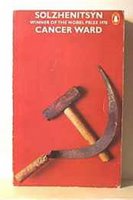 Hi y’all.
Hi y’all. Essayist Sven Birkerts, writes:
Essayist Sven Birkerts, writes: What we, or at any rate what I, refer to confidently as memory – meaning a moment, a scene, a fact that has been subjected to a fixative and thereby rescued from oblivion – is really a form of storytelling that goes on continually in the mind and often changes with the telling. Too may conflicting emotional interests are involved for life ever to be wholly acceptable, and possibly it is the work of the storyteller to rearrange things so that they conform to this end. In any case, in talking about the past we lie with every breath we draw.
What we, or at any rate what I, refer to confidently as memory – meaning a moment, a scene, a fact that has been subjected to a fixative and thereby rescued from oblivion – is really a form of storytelling that goes on continually in the mind and often changes with the telling. Too may conflicting emotional interests are involved for life ever to be wholly acceptable, and possibly it is the work of the storyteller to rearrange things so that they conform to this end. In any case, in talking about the past we lie with every breath we draw. Well, it sure has been a glorious week of frivolity, here on Vancouver Island.
Well, it sure has been a glorious week of frivolity, here on Vancouver Island. Aren't they cute?
Aren't they cute?
 Isabella, of Magnificent Octopus, book-memed me.
Isabella, of Magnificent Octopus, book-memed me.